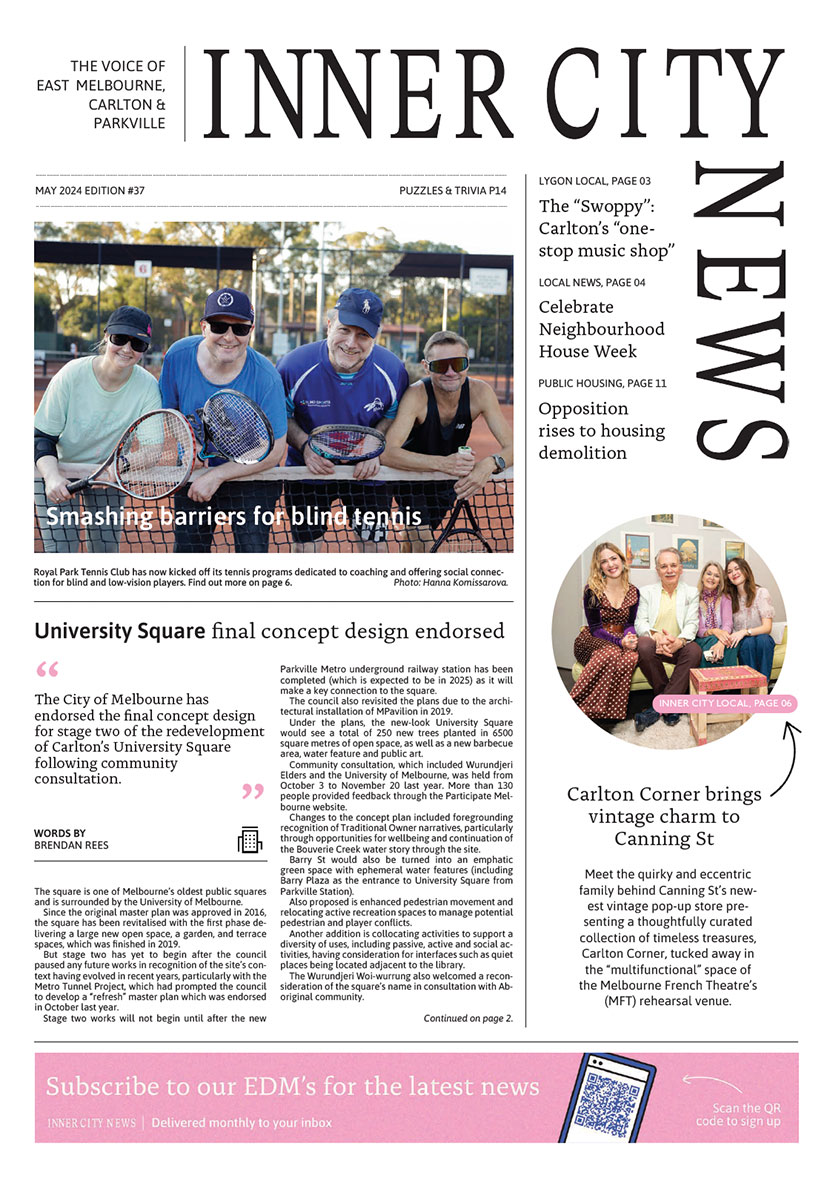Getting involved in decision-making
As the inner city returns to normal after the lockdown, residents are still letting off steam and feeling under pressure.
Greens activist Apsara Sabaratnam is a good conversationalist and is offering her services to communities still affected.
She practices a consensual form of politics that works towards agreement.
If you get into a long-form conversation with Apsara, you’ll pick up the way she deals with anxieties.
Let’s say that you’re worried about a delayed reaction to the lockdown and the transition back.
“You mean a longitudinal behavioural change. We won’t know what that is yet,” Apsara said. “Some changes will be subconscious.”
She’s good at labelling fears and concerns rather than people so that we become more confident when talking about society.
Apsara is secretary of the Multicultural Greens and lives opposite the Carlton Gardens where they’ll be hosting a picnic on March 18 from 10.30am to 1.30pm.
Already 90 people are coming from different community groups and food is being provided.
The aim is to get people talking. “There’s an appetite for one-to-one connection,” she said.
Even a picnic can be fraught. They chose the Carlton Gardens over Flagstaff this year because in December 2021, trams weren’t running, there were anti-lockdown protests and people wearing masks were often abused.
Long-form conversations are one of the Greens’ ways of developing policy. “Some of the best solutions come from people in the community,” she said.
“Consensual decision-making has never been so important,” she said. “There’s hard power and soft. You can have a majority in parliament like the ALP in Western Australia but that can be a problem.”
“If you push legislation through then that can be used against you at the next election.”
In consensual decision-making, “you come up with an idea and other people can expand your ideas and bring in a perspective you don’t have.”
She said the Albanese Government had been practicing consensual politics and giving the minor parties a say.
In a practical sense, consensual decision making might mean that the wording on a policy proposal is amended, and objectors are encourage to be specific, so that changes are made that parties can live with.
“If you look at tribal decision-making it’s always consensual. No one person in a tribe could make a decision on behalf of others.”
Multicultural Greens picnic, Carlton Gardens, March 18 from 10.30am to 1.30pm. •

Carlton Corner brings vintage charm to Canning St






 Download the Latest Edition
Download the Latest Edition